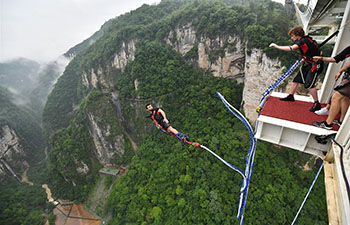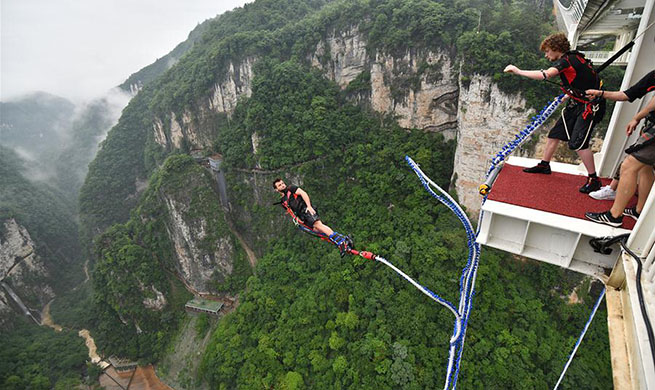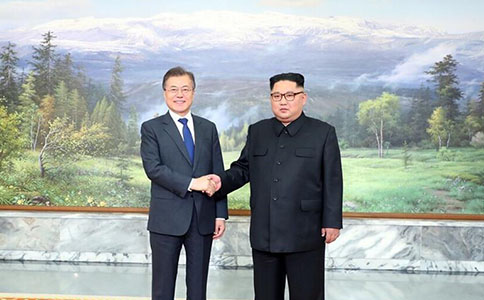GENEVA, May 26 (Xinhua) -- The 71st World Health Assembly (WHA), which closed on Saturday, has endorsed an action plan to counter worldwide declining physical activity, especially among young people where 81 percent of adolescents aged 11-17 years do not meet global recommendations.
Member States endorsed the World Health Organization Global Action Plan on Physical Activity (GAPPA) at the May 21-26 WHA here on the 70th anniversary of the WHO.
"You approved our new Global Action Plan for Physical Activity, which is essential for our fight against noncommunicable diseases," said Dr. Tedros Adhanom Ghebreyesus WHO Director-General in his closing speech at the WHA on Saturday.
He noted that the WHA held a "very successful Walk the Talk event," and regular yoga sessions during committee meetings that helped liven up the assembly "and are important statements that we practice what we preach."
GAPPA is a new initiative aimed at increasing participation in physical activity by people of all ages and ability to promote health and beat noncommunicable diseases.
These include heart disease, stroke, diabetes, breast and colon cancer, and support improved mental health and quality of life.
WHO says that worldwide, 23 percent of adults and 81 percent of adolescents aged 11-17 years do not meet the global recommendations for physical activity.
Prevalence of inactivity is as high as 80 percent in some adult populations influenced by changing patterns of transportation, use of technology, urbanization, and cultural values.
GAPPA provides countries with a prioritized list of policy actions to address the multiple cultural, environmental and individual determinants of physical inactivity.
These actions are connected to four objectives that focus on creating active societies, environments, active people and active systems.
The plan's goal is a 15 percent reduction in the global prevalence of physical inactivity in adults and in adolescents by 2030.
WHO defines physical activity as any bodily movement produced by skeletal muscle that requires energy expenditure.
It can be undertaken in many ways: walking, cycling, sports and active forms of recreation (e.g. dance, yoga, tai chi, weight training) are common types.
Physical activity can also be undertaken as part of work (e.g. lifting, carrying or other active tasks) and as part of paid or unpaid domestic tasks around the home (e.g. cleaning, carrying and care duties).
Sedentary behavior is defined as any waking activity characterized by low energy expenditure, such as sitting, reclining or lying down.
WHO says recent evidence indicates that high levels of continuous sedentary behavior (such as sitting for long periods of time) are associated with abnormal glucose metabolism and cardio-metabolic morbidity, as well as overall mortality.

















